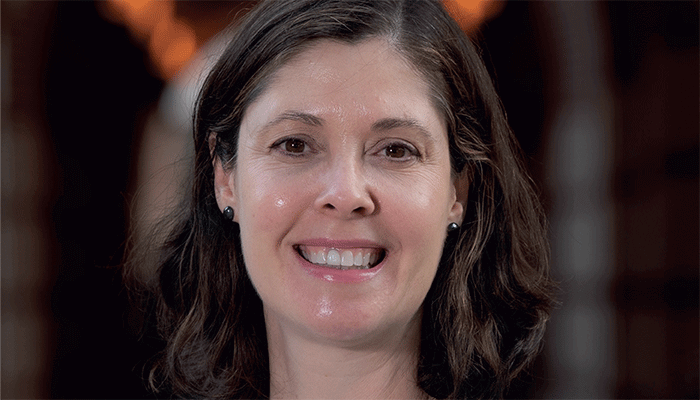How has COVID-19 impacted your life and work?
We’ve all felt the impact of the COVID-19 pandemic, but for new students, postdocs, and faculty it really has been a disaster. Developing the skills and muscle memory of working within a team, impromptu problem solving and brainstorming, sharing joy or frustration with in-the-moment research outcomes – all have hindered by COVID-19. And for postdocs in particular, they’ve really suffered from the inability to give in-person talks and establish important soft skills for their future careers. I’ve observed a new generation of students who, when we returned to in-person meetings, didn’t even know what they didn’t know because they weren’t interacting. And that was the biggest challenge.

To tackle the problem, we set up more frequent sub-group meetings so that students would get more chances to present and discuss their work. We also instituted weekly reports for new students so they could receive feedback from everyone on their project. Thankfully, the situation is getting back to normal, and it’s rewarding to see that these things really are learned skills – and that we can re-establish them.
From a scientific perspective, what have we missed?
It’s obvious that separations are even more important than ever because, in the process of getting new therapeutics to patients, establishing separations strategies on-the-fly for newly approved biologics emphasizes the need not only for new materials, but also – and even more importantly – new models to achieve separations-by-design.
The shortage of students/postdocs to work in this field should be looked at as a crisis. Even before the pandemic, we were experiencing a drop-off in interest and access for international students and postdocs. Then with shut-downs and entry restrictions, that pipeline was almost completely eliminated for an entire year. I don’t think we will return to having a large population of outstanding international students wanting to come here, and we don’t have enough domestic STEM students in the US. If all of the big money industry jobs are in biotech and semiconductors, and all of the big money federal grants are for quantum and energy, separations science is going to suffer even more in the future.
Is there a light at the end of the tunnel?
Long term, I’m still passionately confident that we have not begun to tap the potential of new basic science advances to provide a transformative impact on separations. One of the lines of research in our lab is applying data-science methods to experimental chemistry. Because of the shut-down, we were all forced to work from home and away from the experimental lab, and that forced us to shift some data-science projects to the front burner. The new students, who hadn’t ever been able to get into the lab, were able to take the lead on these projects and find a new way to contribute.
Christy will be discussing her team’s recent efforts to understand antibody separations by tracking antibody transport in stationary phases at the single-analyte scale in 3D at HPLC2022 in San Diego




